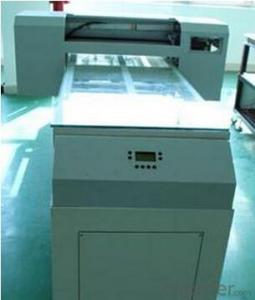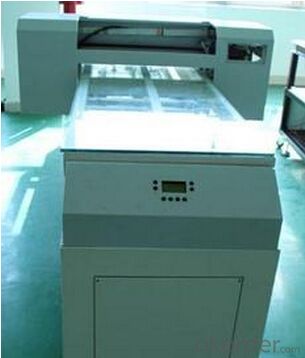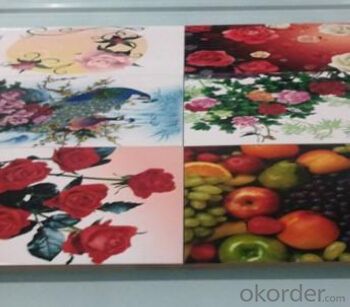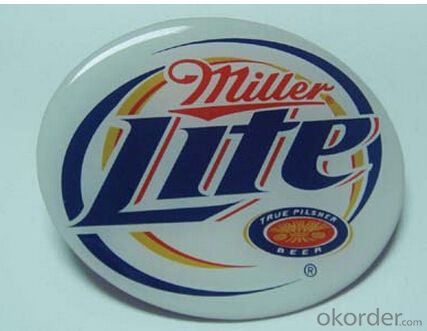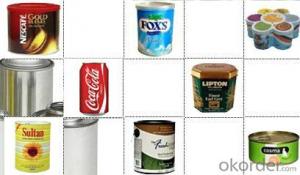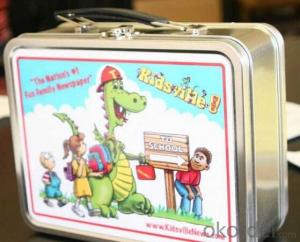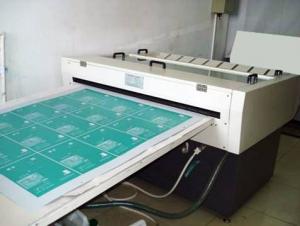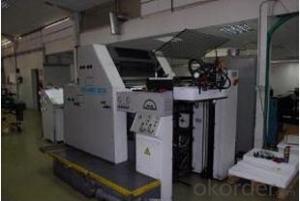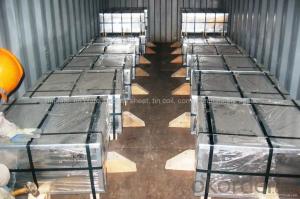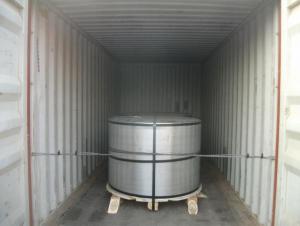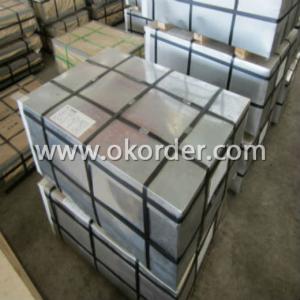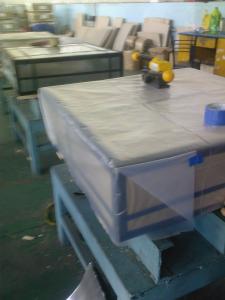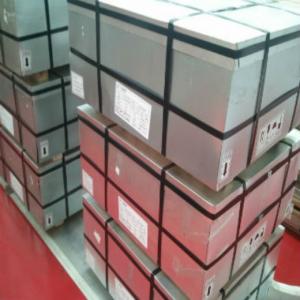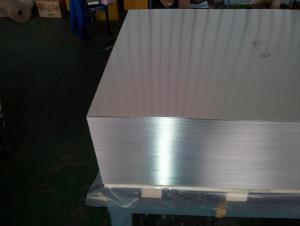Coated Tinplate for Packaging for Metal Cans
- Loading Port:
- China main port
- Payment Terms:
- TT OR LC
- Min Order Qty:
- 25 m.t.
- Supply Capability:
- 30000 m.t./month
OKorder Service Pledge
OKorder Financial Service
You Might Also Like
Coated Tinplate for Packaging for Metal Cans
1. Product Description:
Tinplate and TFS are widely used for making all types of containers such as artistic cans, tea cans, painting cans, chemical package cans and metal printing etc. Its applications are not limited to containers; recently, they have also been used for making electrical machinery parts and many other products.
2. Product Features:
Fully Automatic
Beautiful Appearance
Excellent Paintability & Printability
Excellent Formability & Strength
Excellent Corrosion Resistance
Excellent Solderability & Weldability
3. Product Parameters:
Technical standard | JISG3315 and GB/T24180 - 2009 (BS EN 10202:1990) |
Steel Type | MR / SPCC |
Thickness | From 0.15mm to 0.50mm (Tolerance +/- 0.01mm) |
Width | Normally 600-1050mm (Tolerance +3/-0 mm) |
Coating | Total chromium min 30mg/m2 max 140mg/m2 |
Temper & Annealing | T1-T5, DR7-8, TS230-TH435, T49-T65(+/- 4) |
Surface Treatment | Bright & Fine Stone & Stone & Silver & Matt |
Payment terms | Letter of Credit (L/C), Telegraphic transfer (T/T) |
Price terms | CFR & CIF price term |
Delivery time | Within 60 days after received L/C or T/T down payment |
Packing | High quality shipping packing which contains thin plastic film, rust-proof paper, metal cover, metal angles and strap sand pallet. |
Minimum order Quantity(MOQ) | 25 metric tons (1X 20'' container) |
4. FAQ:
Q1: What is your delivery time?
A: Generally, the delivery time is 70 days after receive the deposit, special specification may take more time.
Q2: What is the payment term?
A: We accept both T/T and L/C. Most customers pay by T/T.
Q3: What kind of after-sevices do you provide?
A: If it is not big problem, we can solve it by emails, phone etc. Or we went to your company to slove it in person.
5. Product Pictures:
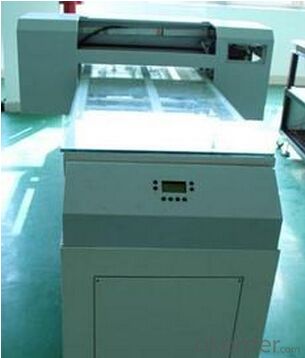
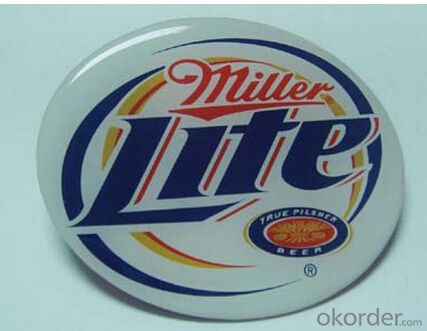
- Q: How is tinplate coated with organic materials for specific applications?
- Tinplate is coated with organic materials for specific applications through a process called organic coating or lacquering. The tinplate is first cleaned and prepared to ensure proper adhesion of the organic coating. Then, a layer of organic material such as epoxy, polyester, or acrylic resin is applied to the tinplate surface using various methods like coil coating or spray coating. This organic coating provides protection against corrosion, enhances the tinplate's appearance, and allows for customization based on specific requirements of the application.
- Q: How does tinplate contribute to the functionality of household goods?
- Tinplate contributes to the functionality of household goods by providing a durable and corrosion-resistant coating that protects the underlying material from moisture, oxygen, and other environmental factors. This ensures that household items such as cans, containers, and appliances have a longer lifespan and remain in good condition. Additionally, tinplate's versatility allows for easy shaping and forming, enabling the creation of various functional and aesthetically pleasing designs for household goods.
- Q: What are the main factors influencing the price of tinplate?
- The main factors influencing the price of tinplate include demand and supply dynamics, changes in raw material costs, global economic conditions, trade policies and tariffs, technological advancements in production processes, and environmental regulations affecting the industry.
- Q: What are the common sizes and shapes of tinplate containers?
- Common sizes and shapes of tinplate containers include round cans, rectangular tins, and square boxes. These containers come in various sizes, ranging from small ones that can hold a few ounces to larger ones that can store several pounds of products.
- Q: How does tinplate packaging contribute to product convenience for consumers?
- Tinplate packaging contributes to product convenience for consumers in several ways. Firstly, tinplate packaging offers durability and strength, ensuring that the product remains intact during transportation and storage, reducing the chances of damage or spoilage. Additionally, tinplate packaging provides an effective barrier against air, moisture, and light, preserving the quality, freshness, and flavor of the product for longer periods. Tinplate containers are also easy to open and reseal, allowing consumers to access the product conveniently and maintain its freshness. Lastly, tinplate packaging is lightweight and easily stackable, making it space-efficient for storage and transportation, thereby enhancing convenience for both consumers and retailers.
- Q: What are the different types of tinplate edge finishes?
- There are three main types of tinplate edge finishes: single edge, double edge, and scroll edge.
- Q: What is the use of tinplate printing tin, storage of food safety
- Electrophoresis on a layer of special coating with food packaging, the packaging is extremely tight, in order to packaging material appearance, appearance are printed with various patterns, because it is the coating of food grade materials, so the food packaging is safe in the warranty period.
- Q: Can tinplate be used for packaging heavy products?
- Yes, tinplate can be used for packaging heavy products. Tinplate is a strong and durable material that can withstand the weight of heavy items, making it suitable for packaging purposes. Its resistance to corrosion and ability to protect the contents from external factors further enhance its usefulness for packaging heavy products.
- Q: Are there any limitations to using tinplate packaging?
- Yes, there are several limitations to using tinplate packaging. Firstly, tinplate packaging is relatively expensive compared to other packaging materials such as plastic or cardboard. Additionally, tinplate packaging is heavier and bulkier, which can increase transportation costs. Tinplate is also more susceptible to corrosion, especially in high humidity or acidic environments. Lastly, tinplate is not as flexible as other materials, making it less suitable for certain packaging designs or shapes.
- Q: What are the different methods of storing tinplate packaging?
- There are several methods of storing tinplate packaging, including stacking them on shelves or pallets, using storage bins or containers, hanging them on racks or hooks, or utilizing specialized storage systems such as gravity flow or carousel systems. The choice of method depends on factors such as available space, the quantity of packaging, ease of access, and the specific requirements of the packaging material.
Send your message to us
Coated Tinplate for Packaging for Metal Cans
- Loading Port:
- China main port
- Payment Terms:
- TT OR LC
- Min Order Qty:
- 25 m.t.
- Supply Capability:
- 30000 m.t./month
OKorder Service Pledge
OKorder Financial Service
Similar products
Hot products
Hot Searches
Related keywords
